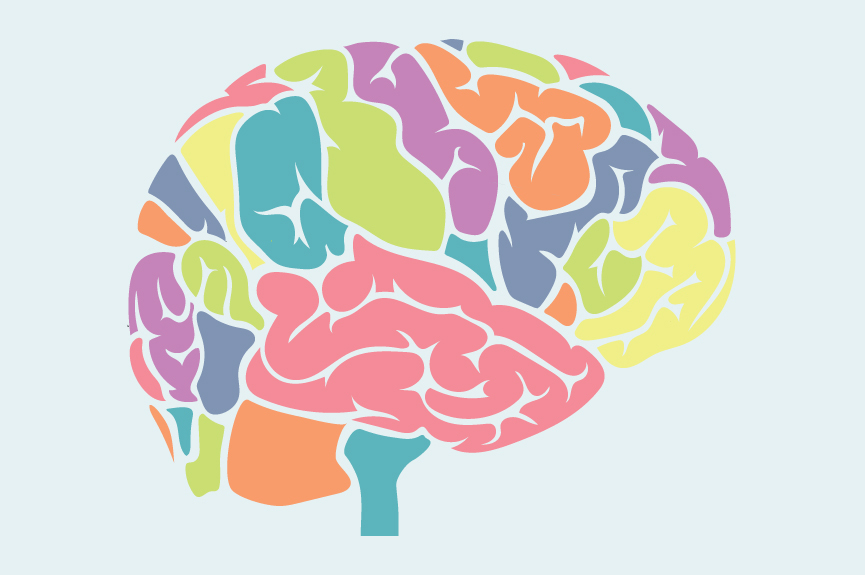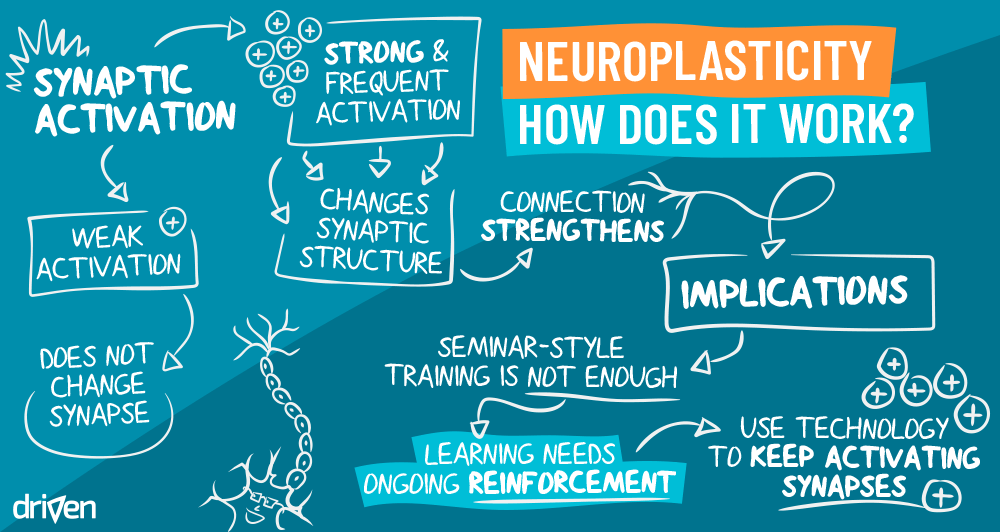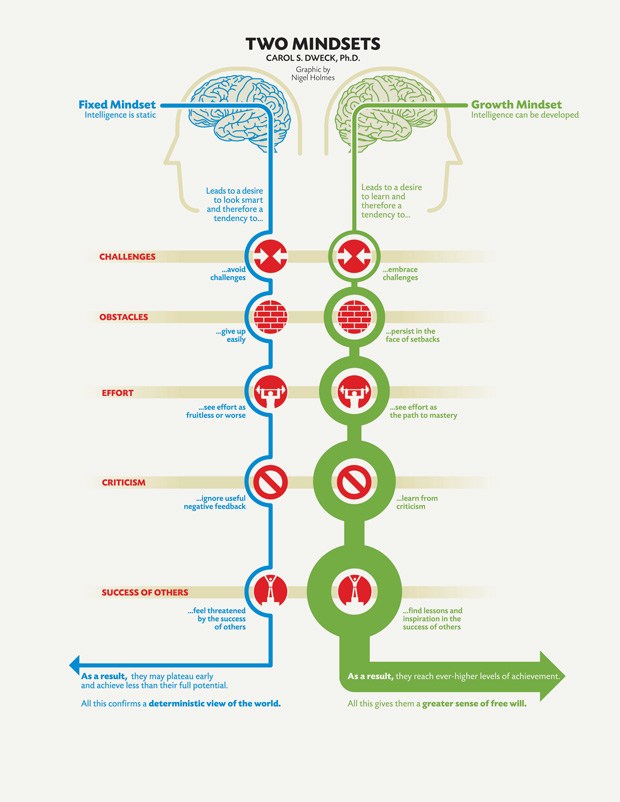Neuroplasticity, Growth Mindset and how your brain can improve.

Your parents always tell you, “you can do anything as long as you put your mind to it.” A lot of people think it to be cheesy or just that their parents are supportive because, well, they’re your parents, that’s what they should be doing. Well, the saying is true and thanks to research and a deeper understanding into the complexities of the human mind, a person can do anything as long as they try, try, and try again. This is the underlying idea behind neuroplasticity and the growth mindset.
Neuroplasticity
Understanding that the brain and a person’s ability to learn things is not set and it able to change continuously throughout a person’s life can be a huge difference in how a person approaches learning new or difficult ideas or topics. The idea of neuroplasticity is that the more you practice something, the better it will stick in your mind. Conversely, the less you practice something, the opposite will happen, you will not get better and in fact may lose some of that ability you worked on. By understanding that practice and study can make you better at things you may have thought you didn’t have the talent for can make those who were nervous or shy about giving it another go confidence. Knowing that by continuously practicing you can get better at things you thought you were not cut out for can be immensely helpful in allowing a person to give something another go, as long as they stick with it and trust the process.

Source: https://hellodriven.com
Neuroplasticity and my studies
Especially with studying programming and computer science knowing that, scientifically, the saying “practice makes perfect” is true gives me the confidence to stick with it and keep on learning and improving. Since the field is always changing with new technologies and updates to existing technologies moving at an exponential rate, knowing that I can succeed with hard work and continuous study is a real boost to my confidence in learning and also in getting into the industry.
He goes on to illustrate that through intensive brain rehabilitation you can literally change your brain, rather than use speculative medicines or invasive behaviour therapy sessions.
Growth Mindset
Growth mindset is the idea that intelligence can be honed and developed. The opposite of that is a fixed mindset which states that you are born with a certain, limited amount of intelligence. Growth mindset is relevant for the fact that just knowing that you can develop intelligence can be the thing that breaks those hurdles for some people. It can help someone overcome the hate for studying math or science, and in fact, with a little bit of study they might come to enjoy it.

Source: Carol Dweck, Ph.D
Graphic: Nigel Holmes
My thoughts on Growth Mindset
I’ve always had the idea that intelligence is grown and not a fixed thing so this study of the growth mindset did not surprise me. Rather than something changing for me, I feel the idea that intelligence can be nurtured was reinforced. Just like with neuroplasticity, just by continuing to do do a little bit of coding every day will make me better at it. As long as I am consistent, even after studying at EDA I know that I can succeed in the field.
Finally
Neuroplasticity and growth mindset are two very similar ideas. They both deal with the brain and how you can develop it. You can be more intelligent, you can change your behaviour and as long as you work towards it, you can do anything you put your mind to.

